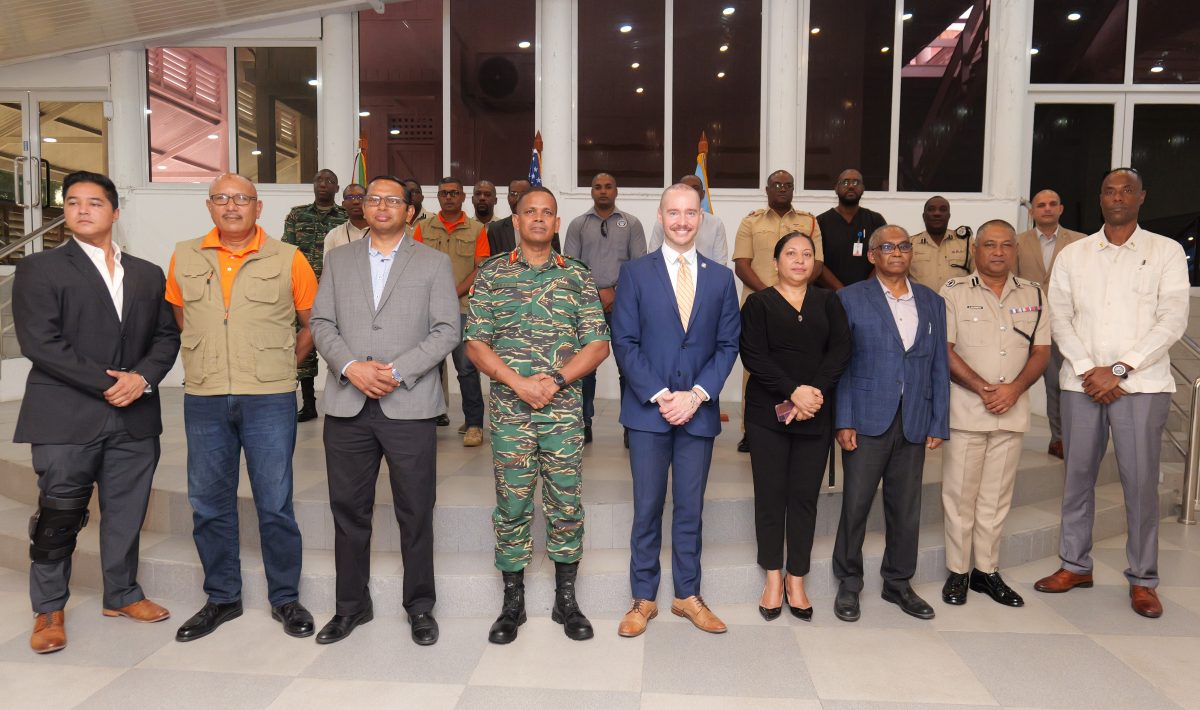Yesterday, the William J. Perry Center for Hemispheric Defense Studies facilitated a role-play tabletop exercise called “KRISIS!” in partnership with Guyana.
A release from the US Embassy said that the Guyana Defence Force hosted the Perry Center’s inaugural exercise for 35 senior security and defense sector participants and observers in Georgetown, Guyana.
“KRISIS!” examines the ability of government (institutions, procedures, personnel, protocols, legal frameworks, etc.) to respond to crises and disasters, the release said.
“Exercising crisis response allows participants to diagnose problems, identify gaps, and employ potential corrective measures. The Perry Center designed and facilitated the simulated exercise, which employs multiple disaster and crisis response scenarios – both natural and human-made – complemented with focus areas such as mission analysis, strategy development, and strategic communication”, the release said.
In opening remarks, Perry Center Director Dr. Paul J. Angelo noted the exercise “was developed to address the need to frequently review and revise decision-making processes and procedures to enable effective and rapid response in ever-changing landscapes.”
Dr. Angelo added that “its application is not limited to crisis response but will inform and improve steady-state decision-making. The fact that Guyana and our partners in the Guyana Defence Force have offered to host our first-ever KRISIS! exercise speaks volumes about the level of trust we have built over the past 27 years with Guyana. We are honored and proud to be here.”
The release said that the Perry Center has a strong, collaborative relationship with partners in Guyana. Dr. Angelo’s visit builds upon his previous March visit to present the William J. Perry Award for Excellence in Security and Defense Education to the University of Guyana in recognition of the University’s Master of Science in Strategic Development Studies program.








